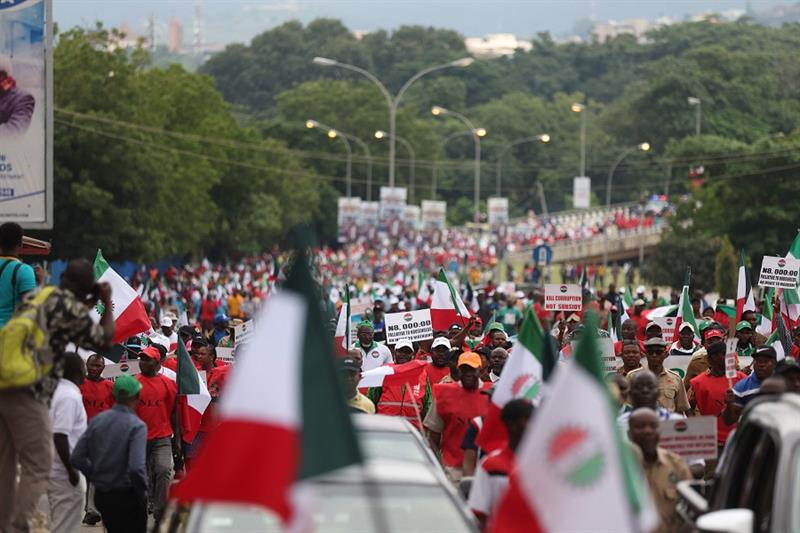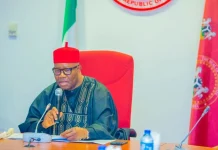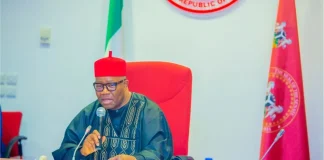🌿 Ruzu Non-Alcoholic Herbal Bitters
Ruzu Non-Alcoholic Herbal Bitters is a natural health supplement specially formulated to:
- ✅ Promote general wellness
- ✅ Detoxify the body
- ✅ Support the treatment of various ailments
Made from a powerful blend of 100% organic and medicinal herbs, Ruzu is completely alcohol-free, making it ideal for:
- 👪 All age groups
- 🌱 Health-conscious individuals
- 🌿 Anyone seeking non-alcoholic herbal remedies
Whether you're looking to boost your vitality, cleanse your system, or support healing the natural way, Ruzu Bitters offers a trusted herbal solution.
Negotiations over a new national minimum wage for Nigerian workers have shown signs of progress, with both the government and organized labour revising their initial positions.
Stalemate Broken?
The previous minimum wage of ₦30,000, implemented in 2019 with a temporary increase to ₦65,000 in September 2023, is set to expire. Talks between the federal government and labour unions had stalled due to a significant gap between their proposed figures.
Labour’s Revised Demand
The Nigeria Labour Congress (NLC) and Trade Union Congress (TUC), representing organized labour, initially proposed a substantial increase to ₦615,000. Recognizing the government’s concerns, they have now reportedly reduced their demand to ₦497,000.
Read Also: Dep Speaker, Kalu, laments huge resources spent on insecurity in South-East without results
Government’s Counter Offer
The government had previously offered ₦48,000, which was rejected by Labour. In response to the revised demand, the government has reportedly upped its offer to ₦57,000.
Remaining Gap and Next Steps
Despite both sides shifting ground, a significant gap still exists between their proposed figures. Negotiations are expected to continue in the coming days as both parties aim to reach a compromise.
Key Questions Remain:
• Will the government be willing to further increase its offer to meet Labour’s revised demand?
• Can Labour unions be persuaded to accept a figure closer to the government’s proposal?
• What is the realistic timeframe for reaching an agreement on a new minimum wage?
• What should be a realistic amount, given the economic situation in the country?
The outcome of these negotiations will have a significant impact on millions of Nigerian workers. A higher minimum wage could improve their living standards but could also put pressure on businesses, potentially leading to job losses.
There are also fears that increase in salaries of government workers would lead to an increase in prices of of goods and services, as seen in previous cases, thereby escalating the tough economic situation based on the fact that there would be more money in circulation.
If you like what we do, and are ready to uphold solutions journalism, kindly donate to the Ripples Nigeria cause.
















